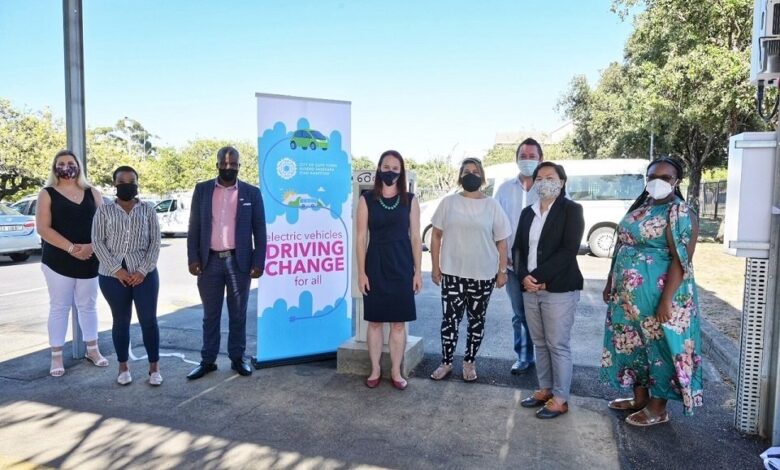Cape Town Launches Its Second Electric Vehicle Charging Station

Cape Town Launches Its Second Electric Vehicle Charging Station. The City of Cape Town has announced the opening of its second public charging station for electric vehicles, another milestone in making EV usage more viable in the city. The charging station was opened at the parking area of the Somerset West Civic Centre. This is the second station in the municipality, with the first located at the Bellville Civic Centre.
“The City is supporting the uptake of eMobility and is developing initiatives to help enable the growth of this technology in Cape Town, so that it can become more accessible and rolled out in the future across all transport modes to benefit all of our residents,” the City’s Mayoral Committee Member for Energy and Climate Change, Councillor Phindile Maxiti, said in a statement.
“It is important that South Africa is not left behind and that we remain relevant to markets,” Maxiti said. In support of the growing global momentum to tackle climate change, Cape Town, along with cities in South Africa and worldwide, has committed to achieving carbon neutrality and climate resilience by 2050 to keep global warming to 1, 5˚C. These necessary targets can only be reached through significant transitions in urban form, energy sources, transportation and resource efficiency. A key element is cleaning up our sources of electricity and the electrification of transport.
While South Africa (SA) has not yet joined the ranks of those countries experiencing a steep rise in EV uptake, the country, much like others, has the same obligations where emissions and energy security are concerned. South Africa already has a strong market for the manufacturing of internal combustion engine (ICE) vehicles.
Several full electric vehicles are coming to South Africa soon, including the Audi e-tron, Mercedes EQC, the New 40 kWh Nissan Leaf and the 62 kWh Nissan Leaf e+, the Opel Corsa-e, and the new MINI-E. Sub-Saharan African (SSA) countries urgently need a transport alternative to stave off the growing burden of fuel dependency and subsidies, as well as an electricity storage solution to leverage their abundant renewable energy resources.




